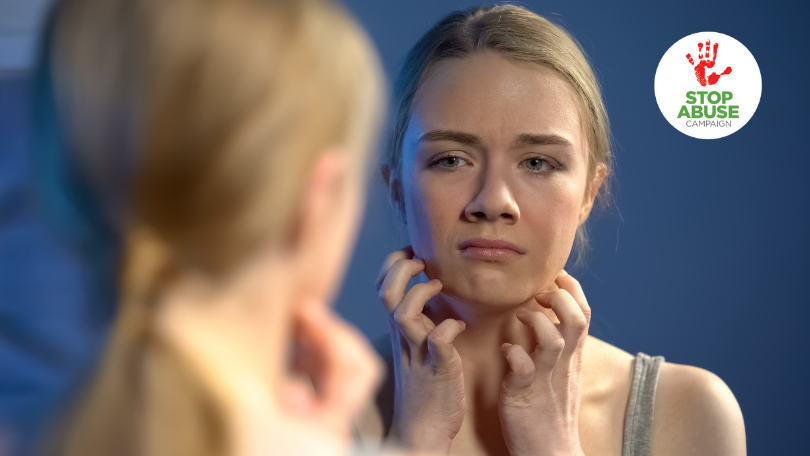If you’ve ever felt concerned about your mental health, you’re not alone. Mental health is an increasingly important issue in our society. Roughly 1 in 5 adults report experiencing mental health problems each year. Shocking as it may be, these statistics uncover the fact that a significant number of people face the reality of struggling with this problem daily.
The general public often misunderstands mental health, assigning generalities and providing cookie-cutter solutions to mental health problems. What gets forgotten in the process is that we are all unique individuals with unique life experiences that determine our thoughts and actions. Our individual experiences are what shape our mental and emotional health.
In observance of May, as the mental health awareness month, let’s talk about what mental health is, how it relates to those who have experienced Adverse Childhood Experiences (ACEs) or childhood trauma, why it is essential, and how you can help raise awareness.
Definition of mental health
You may have noticed a lot of activity on social media in recent years about mental health. More and more people speak out about their struggles and share helpful advice with others going through similar difficulties. It’s a meaningful conversation that helps remove the stigma—so many of us have endured at least one traumatic experience. The traumatic experiences from childhood, as defined by the ACE study, are one of the leading causes of mental health problems in our nation.
The Centers for Disease Control and Prevention (CDC) defines mental health as our “emotional, psychological, and social well-being. It affects how we think, feel, and act. It also helps determine how we handle stress, relate to others, and make healthy choices. It is important at every stage of life, from childhood and adolescence through adulthood.”
How ACEs shape our mental health
It’s probably no news to you that the foundations of our mental health and emotional well-being are developed in early childhood, strongly affected by the primary relationships and our environment.
Experiencing or witnessing abuse or chronic emotional or physical neglect, domestic violence, parental mental illness or addiction, or the loss of a parent can result in lifelong adverse consequences to our mental health. Emotional and behavioral outcomes may include a propensity towards substance abuse, an inclination to risky or defiant behaviors, anxiety, or depression. Gaining awareness, healing, and support to work through these issues can reverse or diminish the adverse effects of these outcomes and improve our mental health.
Do you know your ACE score? The ACE test helps you understand yourself and your childhood better. Learn more about yourself by taking the ACE test.
Mental and emotional health
Emotional health is an important aspect of our mental health. It represents our ability to cope with life and determines how we perceive ourselves and express positive and negative emotions. How we manage emotions, interact with others to build lasting relationships, and interpret life events all depends on our overall mental and emotional health.
Our everyday life experiences, background, family relationships, and core values/beliefs have the power to shape the way we think and feel. Recognizing and understanding our emotions allows us to think clearly, reduce stress and anxiety, build confidence to make healthy choices, and identify appropriate coping mechanisms when dealing with negative emotions.
While research shows that some risk factors, such as ACEs and childhood trauma, may predispose someone to develop conditions like depression, anxiety, schizophrenia, addiction, and bipolar disorder, it does not mean that these conditions are inevitable. Maintaining proper mental and emotional health can help prevent these conditions from occurring or aid the appropriate treatment early on. Remember, there is no shame in asking for help!
How does the brain work when mentally unstable?
Per the National Institute of Health, “the brain is an incredibly complex organ…It controls virtually everything we as humans experience, including movement, sensing our environment, regulating our involuntary body processes such as breathing, and controlling our emotions. Hundreds of thousands of chemical reactions occur every second in the brain; those reactions underlie the thoughts, actions, and behaviors with which we respond to environmental stimuli. In short, the brain dictates the internal processes and behaviors that allow us to survive.”
What happens when we’re exposed to a traumatic experience, especially in childhood?
For many reasons, our minds tend to remember the vivid details of negative or traumatic experiences more than positive ones. These emotionally charged reactions to adverse events are more likely to imprint on our memory. For instance, if you watched a parent become the victim of domestic violence or experienced abuse or neglect yourself as a child, these memories may flood your mind at random points or when you encounter similar situations (either physically or mentally). Over time, sometimes our memories can get distorted and fail us, triggering unwanted emotional and physical responses at inopportune times.
The brain in survival mode
When we feel unsafe or threatened (feelings associated with ACEs and trauma), our brains engage our stress response system—the so-called ‘survival mode.’ This shift can lead to:
- Destructive and crippling responses,
- Impaired emotional balance, triggering guilt, aggression, panic, or fatigue,
- A disconnect between our brain and our body (think when our body freezes in fear), or
- A lack of focus resulting in memory impairments and learning difficulties or challenges.
We can control these responses by taking good care of our mental health and approaching it with supportive understanding and sensitivity.
Why is mental health important?
Mental health is of utmost importance to you and everyone around you. According to the World Health Organization:
- People with severe mental health conditions die as much as two decades early due to preventable conditions,
- Depression is one of the leading causes of disability,
- Suicide is the fourth leading cause of death among 15-29-year-olds.
Unfortunately, many people who struggle with these problems don’t seek treatment because they’re afraid of being stigmatized, being “weak,” or “overdramatizing” the situation. These are terrible LIES that we tell ourselves.
Ignoring adverse emotional, psychological, or social aspects of our health can have devastating long-term consequences. It can contribute to substance abuse, unsatisfactory job performance, relationship problems, or poor physical health. While we can manage some mental health conditions through lifestyle changes, others require medical treatment and even hospitalization in severe cases.
Your mental health care: Breaking the cycle of trauma
When you take care of your mental and emotional health, you improve productivity, foster positive self-esteem, and build better relationships with others. Taking the time for self-care and prioritizing your mental health can also help reduce stress and some physical health problems linked to mental health conditions, such as heart disease, obesity, and fatigue.
Furthermore, this can have a ripple effect, enhancing our children’s lives and overall family health, ultimately affecting future generations by breaking the cycle of trauma.
How can you spread awareness about mental health?
Even if we hadn’t experienced ACEs, and unfortunately, most of us did, life in and of itself is dynamic and can be stressful and confusing. The effects of mental health conditions are not always easy to understand, and getting help can be a real struggle. So, how can you get help if you have a mental health problem, and how can you help others, raising awareness during this mental health awareness month?
Talk to someone. This could be a friend, a family member, a counselor, or an anonymous hotline (see the links/numbers below). Finding support and talking through a negative thought or experience can make it easier to break negative thought patterns.
Practice kindness and compassion. Start with self-care, showing yourself kindness and compassion for your physical, emotional, and mental health. Only when we take care of ourselves can we be there for other people.
Understand your ACEs. The ACE test helps you understand yourself and your childhood better. Learn more about yourself by taking the ACE test here.
Donate or volunteer with an organization that works with people dealing with mental trauma. The Stop Abuse Campaign works to protect children from harmful Adverse Childhood Experiences (ACEs), empowering generations of children to reach their full potential and preventing mental health issues caused by ACEs.
Share your mental health story. The Stop Abuse Campaign shares “Survivor Stories” to help spread the word about Adverse Childhood Experiences and ignite the conversation for breaking the cycle of abuse.
Additional resources for help
Mental Health America (MHA) is the nation’s leading community-based nonprofit dedicated to addressing the needs of those living with mental illness and promoting the overall mental health of all.
Crisis Text Line – Text HOME to 741741
National Suicide Prevention Lifeline – For TTY Users: Use your preferred relay service or dial 711 then 1-800-273-8255
Substance Abuse and Mental Health Services Administration National Helpline – (800) 662-4357
Learn more about ACEs associated with mental health issues here. Learn how you can help break the cycle of trauma by subscribing to our newsletter and supporting our work. Read about the ten categories of ACEs by following our blog. Do you know your ACE score? Take the ACE test here.
Do you know your score?
Discover your ACE score and unlock a new understanding of your life. Take the test and gain insights into how your early experiences shape your well-being. Don't let your past define you – empower yourself with knowledge.

Maia Richardson
Content Writer
Inspired by humanity, equality, and education, Maia is a content writer working diligently to make positive changes in the world by supporting thought leaders and changemakers.
